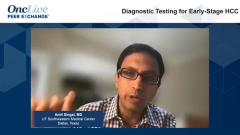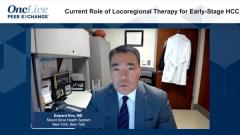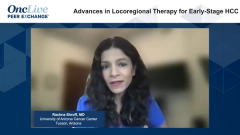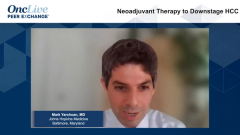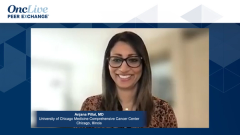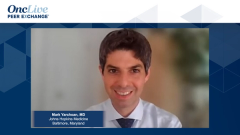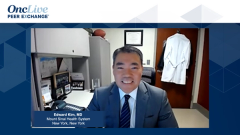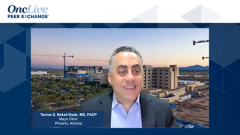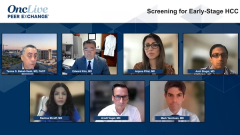
Diagnostic Testing for Early Stage HCC
The rationale for diagnostic imaging to evaluate and diagnose early stage hepatocellular carcinoma.
Episodes in this series

Tanios S. Bekaii-Saab, MD, FACP: Let’s follow through on this idea. Now we have a patient for whom we have a high suspicion they have early stage HCC [hepatocellular carcinoma]. Amit, I’m going to go to you. One of the more controversial issues is the role of biopsy, when to and when not to. How do you stage the patients? How do you use the radiology modalities to essentially avoid a biopsy for some patients and ensure accuracy of diagnosis?
Amit Singal, MD: Yes, great question, Tony. Anjana started to bring this up in terms of, once again, that cancer care continuum. Doing screening is only the first step. The key thing is when you find that abnormal screening result, whether that’s an abnormal ultrasound with an observation greater than a centimeter, or an abnormal biomarker, so for example, alpha-fetoprotein, greater than 20 ng/mL is the typical threshold, then you would need to go on to doing timely diagnostic evaluation. Our diagnostic evaluation in HCC is typically done with a 4-phase or multi phase CT scan, or a contrast-enhanced MRI. I say multiphase because it’s important to have a noncontrast phase, an arterial phase, portal venous phase, and a delayed phase. A single-phase CT scan in the ED [emergency department] does not qualify as a diagnostic test for HCC. What you’re looking for is characteristic imaging features, and that can include features such as arterial phase enhancement, portal venous or delayed washout, capsule appearance, and threshold growth, so growth over time. The nice thing is that we used to look for all of those things, and if you had that, we knew you had a very high risk of having HCC, somewhere between 95% and 97% in an at-risk patient.Patients with cirrhosis or with chronic hepatitis B had a very high risk of having HCC if you had these typical characteristics on imaging.
This has now been codified by the LI-RADS [Liver Image Reporting and Data System], which I think many of our academic health systems and community practices are starting to use more in clinical practice.What you do is you take these imaging features, and you can classify somebody from LI-RADS1 to LI-RADS5. LI-RADS1 is definitely not HCC; LI-RADS5 is definite HCC. If somebody is LI-RADS5, definitely HCC, once again, a 95% to 97% positive predictive value for HCC, that is somebody who I do not biopsy for confirmatory diagnosis because the risk of a biopsy outweighs increasing that positive predictive value any higher than that. Now if you have somebody with, for example, a LI-RADS4, which is highly suspicious but not definite, the risk of having HCC in that lesion is somewhere between 75% and 80%.That can be somebody, based on multidisciplinary discussion and how that would impact your immediate treatment decisions, that may be somebody for whom you say, short interval follow-up, or biopsy. In our center, we do biopsy some of those patients, and once again follow others, but it depends on how that’s going to change your immediate clinical management.
Transcript Edited for Clarity


